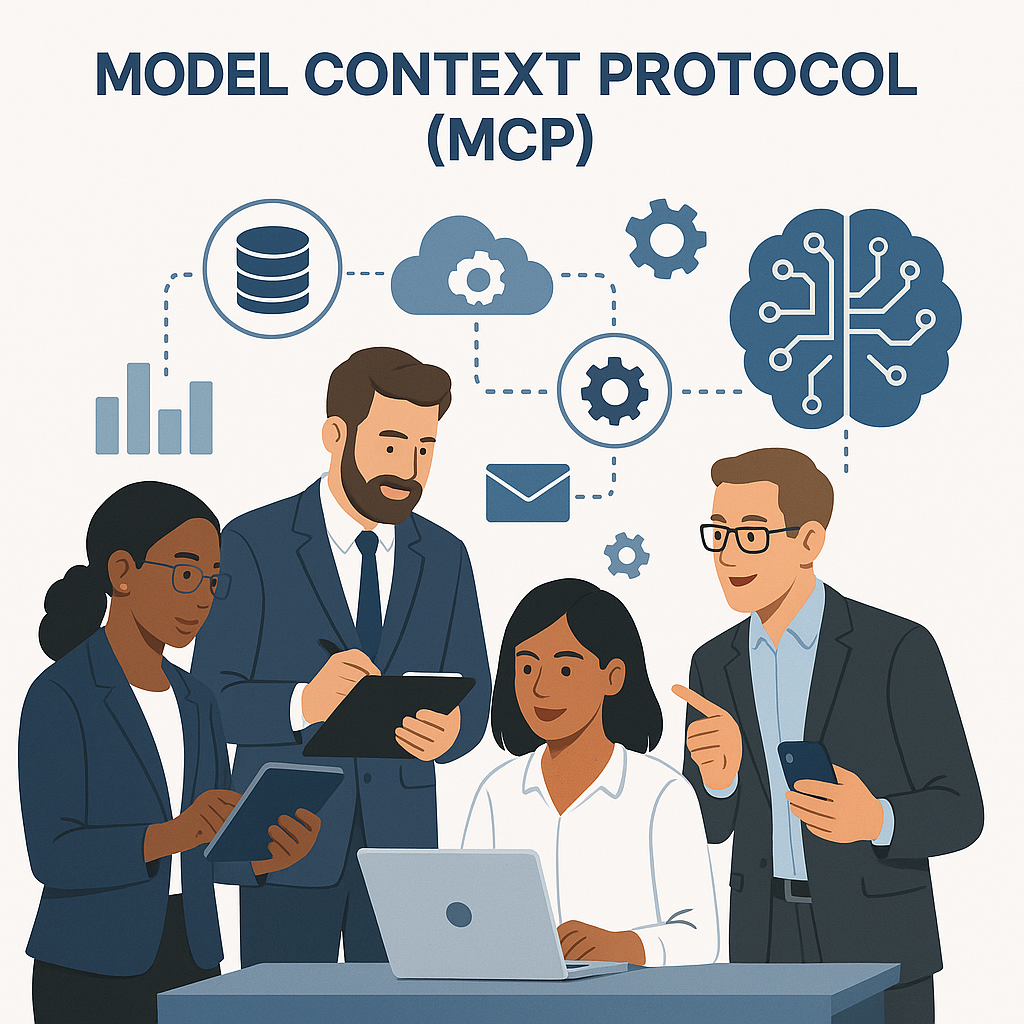🚀 **Is Your AI Operating at Its Full Potential? Here’s How to Supercharge It with the Model Context Protocol!**
In today’s fast-paced tech landscape, the ability of your AI to interact with external tools and data sources is crucial for maximizing its utility. Enter the Model Context Protocol (MCP) — a game-changer that opens the door to unparalleled integrations and functionalities for AI systems.
### **What is the Model Context Protocol (MCP)?**
Developed by Anthropic, MCP is a standardized framework designed to bridge the gap between AI models and various applications. It enables AI to tap into external tools, databases, and services, significantly enhancing its capabilities to:
– Perform complex data retrieval
– Automate processes seamlessly
– Interact with other software systems in a user-friendly manner
Imagine being able to tailor your AI to not just answer queries, but also to perform tasks like processing data or manipulating workflows — this is the power of MCP.
### **Why You Should Consider Implementing MCP**
1. **Enhanced Functionality**: Your AI can tackle intricate tasks by leveraging resources outside its original training. For instance, in industries ranging from finance to healthcare in Denmark, organizations can automate tedious data processing tasks, significantly reducing time and effort.
2. **Standardized Integration**: With MCP, integrating your AI with existing software becomes straightforward, ensuring a consistent approach across different applications. This means less friction and faster implementation!
3. **Flexibility**: MCP accommodates a diverse array of use cases! Whether it’s retrieving detailed reports or orchestrating complex automation tasks, MCP caters to your specific requirements.
### **Getting Started with FastMCP**
If you’re keen on building your own MCP server, the FastMCP Python library simplifies the entire process. With its user-friendly setup, FastMCP transforms complicated protocol management into an intuitive experience. Here’s why FastMCP is a fantastic choice for developers:
– **Minimal Boilerplate**: Create servers quickly without extensive coding.
– **Proxying Support**: Easily modify existing servers to suit your needs without starting from scratch.
– **Composability**: Seamlessly integrate multiple MCP servers for managing complex applications.
– **OpenAPI Integration**: Transitioning to MCP is a breeze with automatic server generation from existing OpenAPI specs.
### **Example: Creating a Simple MCP Server**
Here’s a peek at how you can create an MCP server that performs basic calculations and generates greetings:
“`python
from fastmcp import FastMCP
mcp = FastMCP(“Demo”)
@mcp.tool()
def add(a: int, b: int) -> int:
return a + b
@mcp.resource(“greeting://{name}”)
def get_greeting(name: str) -> str:
return f”Hello, {name}!”
“`
### **Business Value and Real-World Applications**
At Best-Choice.dk, we’ve witnessed firsthand how integrating MCP with our AI solutions has transformed our clients’ operations. By automating data processing, our clients have reduced their workload, gained actionable insights faster, and ultimately saved considerable costs.
With the advancements in AI technology and the increasing importance of integration capabilities, now is the time to elevate your AI’s functionality.
### **Final Thoughts**
Are you ready to unlock your AI’s potential and drive efficiency within your business? Let’s spark the conversation! Comment below if you’re interested in exploring how MCP can transform your AI capabilities.
👉 **What challenges are you facing in integrating external data sources with your AI?**
#AI #MachineLearning #MCP #FastMCP #TechInnovation #DataIntegration
